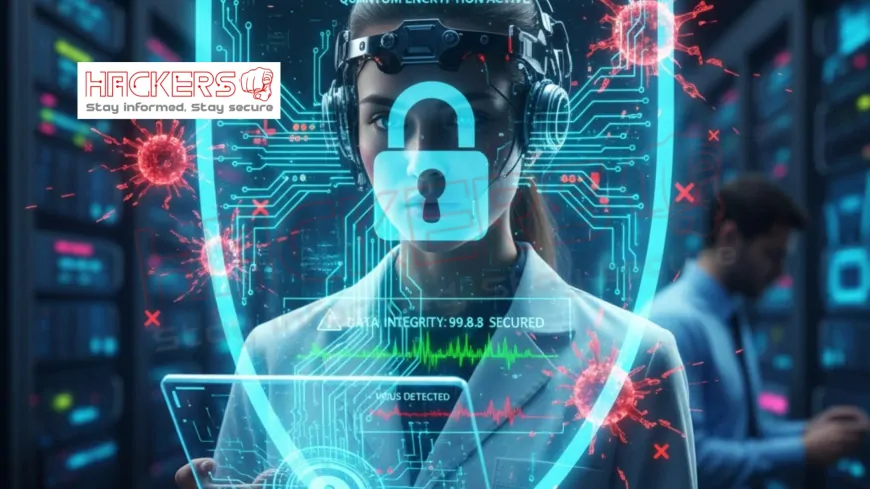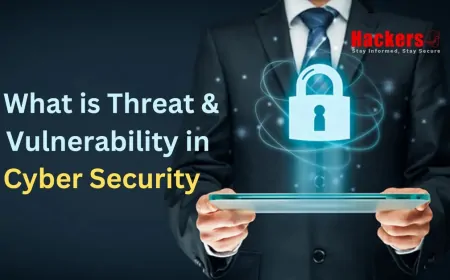Why Human Ego Is a Bigger Cybersecurity Risk Than Technology
We've all heard about the latest antivirus software or firewalls that promise to keep hackers at bay, but what if the biggest threat to your online safety isn't a virus or a weak password? What if it's something as human as pride? Human ego, the belief that "it won't happen to me" or "I'm too smart to fall for a scam," is a silent but powerful force that cybercriminals exploit every day. In a world where technology is constantly improving, our own overconfidence can leave us more vulnerable than any outdated system. This blog explores why human ego is a greater cybersecurity risk than technology itself, how it plays into the hands of attackers, and what you can do to stay safe, even if you're new to the digital world.

Table of Contents
- What Is Human Ego in Cybersecurity?
- How Cybercriminals Exploit Human Ego
- Common Ego-Driven Cybersecurity Mistakes
- Technology vs. Human Error: A Comparison
- Strategies to Mitigate Ego-Related Risks
- Comparison of Cybersecurity Tools to Support Safe Habits
- Conclusion
- Frequently Asked Questions
What Is Human Ego in Cybersecurity?
In cybersecurity, human ego refers to the overconfidence, pride, or false sense of security that leads people to underestimate cyber threats. It's the mindset that convinces you you're too savvy to click a phishing link, too careful to reuse passwords, or too insignificant to be targeted by hackers. This ego can manifest in several ways:
- Overconfidence: Believing you can spot any scam or that you're not a target.
- Complacency: Ignoring security updates or best practices because you think you're already safe.
- Denial: Assuming cyber threats are someone else's problem, like big companies or tech experts.
- Status-Based Trust: Thinking your position or knowledge makes you immune to attacks.
Ego makes us think we're in control, but in reality, it opens the door for cybercriminals who are experts at exploiting human weaknesses. Unlike technology, which can be patched or upgraded, ego is harder to fix because it’s part of who we are.
How Cybercriminals Exploit Human Ego
Cybercriminals are like digital psychologists, using tactics that play on our pride and overconfidence. Here’s how they leverage human ego:
- Phishing Scams: Emails or messages that flatter you, like offering a "special reward" or an "exclusive deal," appeal to your sense of importance, prompting you to act without thinking.
- Social Engineering: Attackers pose as trusted figures, like your boss or IT department, knowing you might not question authority due to pride or trust in your judgment.
- Fake Expertise: Scams that mimic professional or technical language can trick you into believing they're legitimate because you trust your ability to judge authenticity.
- Urgency Traps: Messages that demand immediate action, like "your account is at risk," exploit your confidence in handling crises quickly, bypassing careful checks.
These tactics work because ego makes us overestimate our ability to spot danger, leading us to ignore warning signs that a more cautious person might notice.
Common Ego-Driven Cybersecurity Mistakes
Human ego leads to specific mistakes that make us vulnerable. Here are some common ones:
- Reusing Passwords: Thinking "my passwords are clever enough" and reusing them across sites, making it easy for hackers to access multiple accounts.
- Ignoring Updates: Assuming your device is fine without updates because you haven't noticed problems, leaving security holes unpatched.
- Clicking Without Checking: Believing you can spot fake links or emails, so you click without verifying the source.
- Over-Sharing Online: Posting personal details on social media, confident that only friends will see, giving hackers material for targeted attacks.
- Skipping 2FA: Thinking a strong password is enough, avoiding two-factor authentication because it feels unnecessary.
These mistakes stem from a belief that we're too smart or careful to be caught, but even small oversights can lead to big problems.
Technology vs. Human Error: A Comparison
While technology can have vulnerabilities, human error, fueled by ego, is often the bigger risk. Here's a comparison to show why:
| Aspect | Technology Risks | Human Ego Risks |
|---|---|---|
| Nature | Software bugs, outdated systems | Overconfidence, complacency |
| Fixability | Can be patched or upgraded | Requires behavior change, harder to address |
| Predictability | Vulnerabilities often known and fixable | Unpredictable, varies by person |
| Exploitation | Requires technical skill to exploit | Exploited through simple social tricks |
Technology can be fixed with updates, but human ego requires a shift in mindset, making it a tougher challenge to overcome.
Strategies to Mitigate Ego-Related Risks
Overcoming ego-driven risks starts with humility and proactive habits. Here are practical steps to stay safe:
- Admit Vulnerability: Accept that anyone can be a target, no matter how tech-savvy. This mindset encourages caution.
- Use a Password Manager: Store unique, strong passwords in tools like LastPass or Bitwarden to avoid reusing passwords out of confidence.
- Enable Two-Factor Authentication (2FA): Add an extra login step with apps like Google Authenticator to protect accounts, even if you think your password is secure.
- Verify Before Acting: Check email senders or message sources before clicking links or sharing information, no matter how legitimate they seem.
- Stay Updated: Enable automatic updates for your devices and apps to close security gaps, even if you haven’t noticed issues.
- Learn Continuously: Follow cybersecurity blogs or take short online courses to stay aware of new threats and best practices.
- Limit Personal Sharing: Be cautious about what you post online to reduce the data attackers can use against you.
These steps help you stay grounded, reducing the chances that ego will lead to a costly mistake.
Comparison of Cybersecurity Tools to Support Safe Habits
Tools can help reinforce safe habits and counter ego-driven risks. Here’s a comparison of useful options:
| Tool Type | Examples | Key Features | Cost |
|---|---|---|---|
| Password Manager | LastPass, 1Password | Secure password storage, generation | Free or $10-$36/year |
| 2FA App | Google Authenticator, Authy | Time-based login codes | Free |
| Antivirus | Bitdefender, Norton | Malware detection, phishing protection | $20-$60/year |
| Browser Extension | uBlock Origin, Netcraft | Blocks malicious links, site checks | Free |
These tools act as a safety net, catching mistakes that ego might cause, and are accessible even for beginners.
Conclusion
While technology provides robust tools to protect us online, human ego remains a bigger cybersecurity risk because it blinds us to our vulnerabilities. Overconfidence, complacency, and denial make us easy targets for phishing, social engineering, and other scams. By acknowledging our limitations, adopting tools like password managers and 2FA, and staying vigilant, we can reduce these risks. Cybersecurity isn't just about software; it's about cultivating a mindset of humility and caution. In a digital world, staying safe starts with taming our ego and building habits that keep us one step ahead of cybercriminals.
Frequently Asked Questions
What is human ego in cybersecurity?
Human ego refers to overconfidence or pride that leads people to underestimate cyber threats, thinking they’re too smart or careful to be targeted.
Why is ego a bigger risk than technology?
Technology can be patched, but ego-driven mistakes, like ignoring updates or clicking fake links, are harder to fix and easier for hackers to exploit.
How do cybercriminals use ego against us?
They use flattery, urgent messages, or fake authority to exploit overconfidence, tricking people into sharing information or clicking links.
What are common ego-driven mistakes?
Mistakes include reusing passwords, skipping updates, clicking unverified links, or sharing too much personal information online.
Can anyone be a target of cybercrime?
Yes, anyone can be targeted, regardless of their knowledge or status, as hackers exploit human weaknesses like ego, not just technology.
What is phishing, and how does ego play a role?
Phishing involves fake emails or messages to steal information. Ego makes you think you can spot fakes, leading to careless clicks.
How can I avoid ego-driven mistakes?
Admit you’re vulnerable, use tools like 2FA, verify sources, and stay updated on cyber threats to stay cautious.
What is two-factor authentication (2FA)?
2FA adds an extra login step, like a code sent to your phone, protecting accounts even if you fall for a scam.
Why do people reuse passwords?
People reuse passwords out of confidence that they’re secure or because it’s convenient, but this makes multiple accounts vulnerable.
How does social media increase ego-related risks?
Over-sharing personal details gives hackers data to craft convincing scams, which ego may lead you to trust.
Are free cybersecurity tools effective?
Yes, free tools like Google Authenticator or uBlock Origin are effective if from reputable sources and used correctly.
What should I do if I click a suspicious link?
Change passwords, enable 2FA, run an antivirus scan, and monitor accounts for unusual activity to limit damage.
Why do people ignore software updates?
Ego leads people to think their systems are fine without updates, but this leaves security holes that hackers can exploit.
Can training reduce ego-related risks?
Yes, learning about cyber threats and best practices fosters humility and caution, reducing ego-driven mistakes.
What is social engineering?
Social engineering tricks people into sharing information by posing as trusted figures, exploiting ego and trust.
How do I verify an email’s authenticity?
Check the sender’s email address for odd domains or misspellings, and contact the source directly using a trusted method.
Why is complacency a cybersecurity risk?
Complacency, driven by ego, leads to skipping security measures like 2FA or updates, leaving you vulnerable.
Can antivirus software prevent ego-driven errors?
It can catch some mistakes, like malicious links, but awareness and good habits are crucial to address ego fully.
How does ego affect businesses?
Employees or leaders who think they’re immune to attacks may ignore protocols, leading to breaches that harm the business.
What’s the first step to better cybersecurity?
Acknowledge that you’re a potential target, then adopt tools and habits like password managers and verifying sources.
What's Your Reaction?










































































